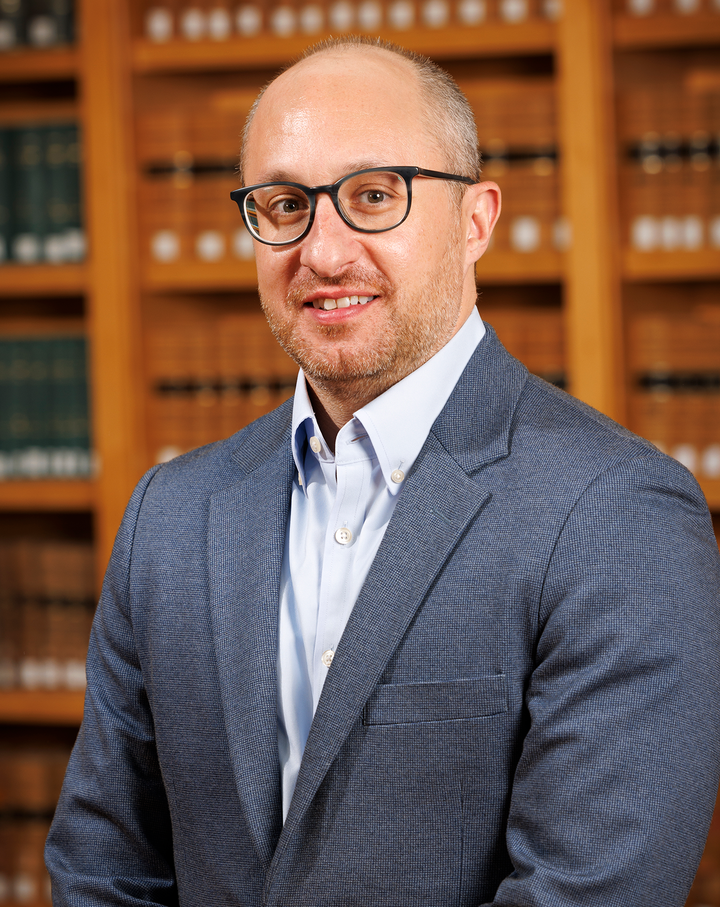Professor Greg Dickinson joined the College of Law in August, where he will teach Contracts, Remedies, and Unfair Competition. He also has a courtesy appointment as an Assistant Professor with the School of Computing and is a Fellow with the Stanford Law School Program in Law, Science and Technology. Dickinson previously clerked for Judge Richard Wesley of the U.S. Court of Appeals for the Second Circuit and practiced law at Ropes & Gray LLP in Boston and at two firms in Rochester, New York.

In the classroom, Dickinson hopes his own experiences help make lessons come to life. He can tell that real-world examples have an impact.
“You can teach the law, but if you can also give a story about what it’s actually like to handle a case through execution, it’s powerful,” he said.
These stories are especially pertinent when it comes to internet law and appellate litigation, areas where Dickinson has significant experience from his time in practice. In talks with students, he shows how arguments can be tailored to particular audiences, whether trial or appellate courts or governmental agencies.
Dickinson initially studied computer science in college, before pursuing law as a way to combine his interest in computer science with his passion for philosophy, history, and the humanities. His winding path to legal practice and the overlap of these fields continues to inform his work.
Dickinson’s current research interests include technology-related issues in commercial law and how traditional common law might inform modern solutions.
“I want to look at cost effective ways to accomplish regulation and how we can apply private law to areas in tech,” he said.
The position provides a unique opportunity for Dickinson as he dives deeper into questions surrounding technology innovation, machine learning, and artificial intelligence. His current focus is on ways these tools can be applied to traditional questions within the law.
While this research is a driving force for Dickinson, he said he is most excited to work with students during the first stages of their legal career.
“It's a combination of deep thinking, where I get to think about complicated legal questions, with meeting new lawyers and getting to hear their first impressions on the legal system,” he said.